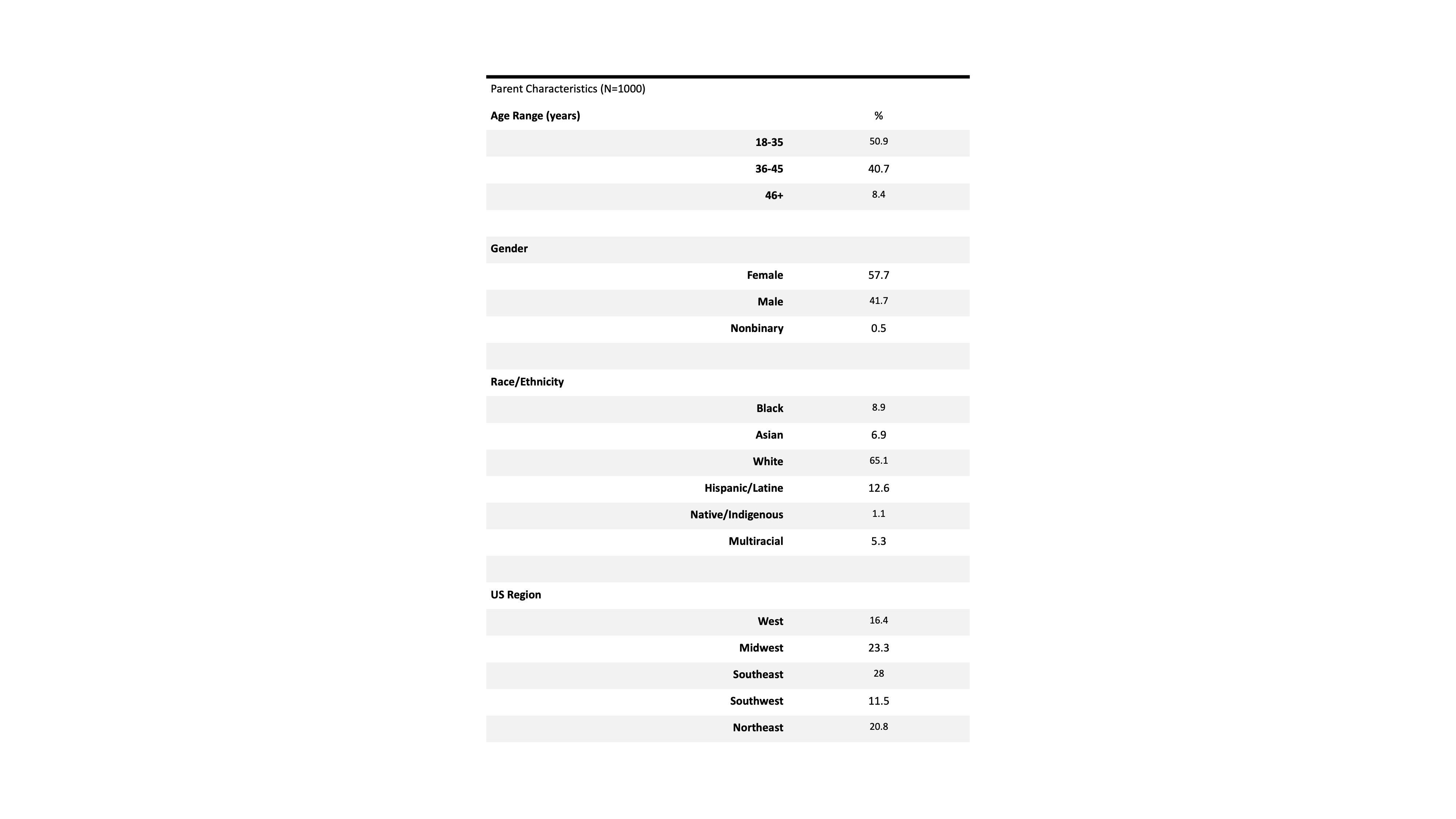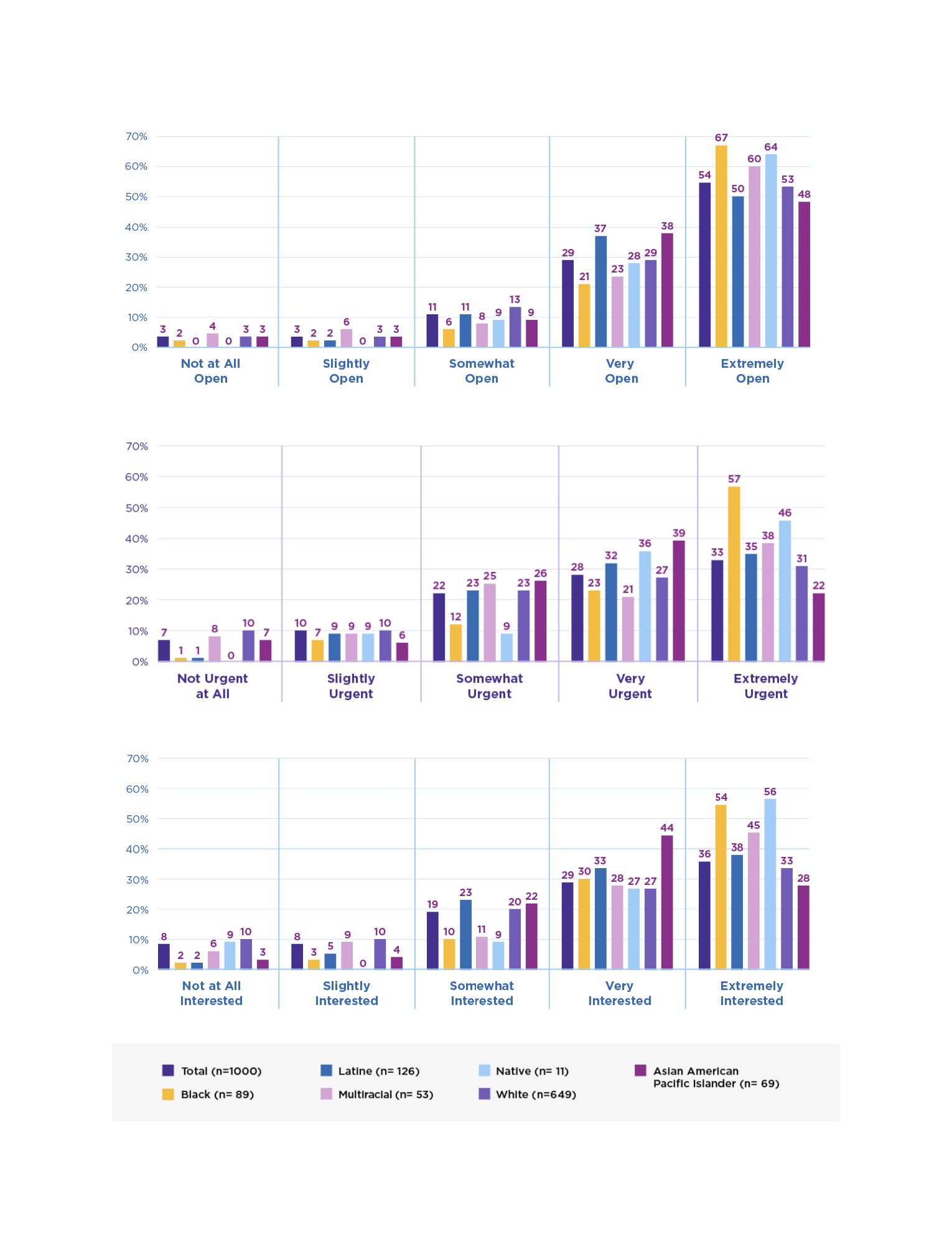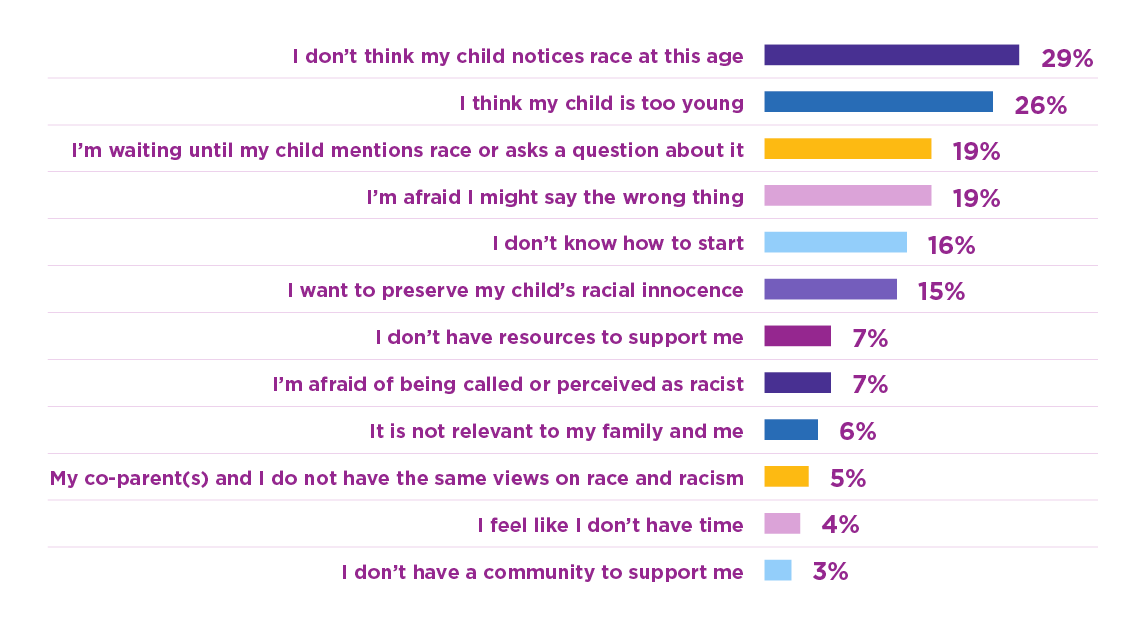Developmental and Behavioral Pediatrics
Session: Developmental and Behavioral Pediatrics 4: Potpourri
595 - Findings From a National Parent Survey on Children's Racial Learning
Sunday, May 5, 2024
3:30 PM - 6:00 PM ET
Poster Number: 595
Publication Number: 595.1927
Publication Number: 595.1927
- IL
Irene M. Loe, MD (she/her/hers)
Associate Professor
Stanford University School of Medicine
SAN FRANCISCO, California, United States
Presenting Author(s)
Background: Pediatricians are encouraged to discuss race and racism with families. Racial socialization, the processes by which children are educated about racial identity and racialized experiences, has been studied in the context of the family. Less is known about parent perspectives on children's racial learning and how to address those needs in light of current societal events. Such perspectives could inform pediatric efforts to address race and racism in practice.
Objective: (1) To gather parent perspectives on and engagement with children's racial learning in a diverse sample
(2) To evaluate differences in parent perspectives and engagement among racial subgroups and as a function of child age and parent-identified political orientation
Design/Methods: Parents (N=1000) of children (0-13 yr) were recruited using purposive sampling of US geographic regions in Nov-Dec 2022 to complete a 15-min online questionnaire sponsored by EmbraceRace, a project of the nonprofit Proteus Fund. The survey gathered demographics (age, race, sex, political orientation); parent perspectives on children’s racial learning with regard to openness, urgency, and interest in resources (5-point scale); earliest age and frequency of conversation; and selection of barriers and facilitators (resources), for discussing race with children. Results are presented descriptively, with additional proportions as a function of racial group, political orientation, and child age.
Results: There was good representation of the US parent population, Table 1. A majority of parents expressed openness, urgency, and resource interest (extremely or very in 84, 61, and 65%, respectively) to support children’s racial learning, Figure 1; this was generally true across racial groups. Age 7 years was the earliest average age for conversations on race, yet many parents report they never/rarely have conversation, especially for younger ages (94%, age 0-1; 61%, 2-5, 26%, 6-9, 16%, 10-13). Several barriers were identified, Figure 2. Identifying as liberal was associated with higher rates of openness, urgency, and resource interest, yet considerable proportions of conservatives were extremely/very open to engaging children on race, 93 vs. 70%.
Conclusion(s): The mismatch between parents’ openness, urgency and resource interest to discuss race/racism and their lack of actual discussions on race emphasizes important gaps in children’s racial learning. Through longitudinal relationships, pediatricians can play an important role in guiding parents on racial learning and the intersection and impact of race and racism on children’s health, behavior, and development.



